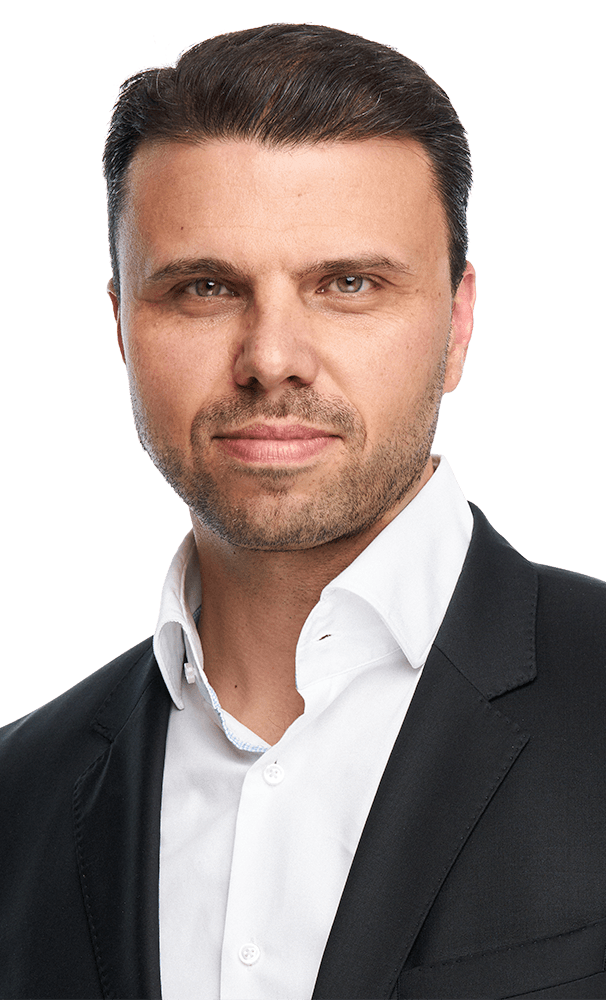In today’s offices, the demand for digital workspaces and managing them is higher than ever. Matrix42, a German-based software company, meets the needs of employers by deploying and managing workplaces through a holistic, integrated and automated solution. Oliver Bendig, CEO and Chief Culture Officer at Matrix42, talks to Intelligent CXO about the business, major areas of investment in his industry and future growth for Matrix42.

Describe your current job role.
As the leader of a German-based, international operating software company, one of my main goals is to attract, retain and develop the right people. I aim at living our company culture and as such being a role model for our employees. Hence my role is in building and continuously improving a great team as well as an effective organisational structure to embrace the companies’ culture.
On the other hand, together with the leadership team, we define and execute strategic company priorities to ensure growth, financing and profitability, according to our business plan. We implemented a Value Creation Programme in order to constantly improve our work system for higher scalability. Building and growing relationships with our key customers, partners and strategic alliance partners is also an important part of my role.
What would you describe as your most memorable achievement?
I’m the proudest of our team. When reflecting over the past years I get goosebumps not only because we doubled the number of ‘Matricians’ during the past four years, but mainly because of the valuable people we were able to attract. As well navigating the company through the past challenging months with the COVID-19 crisis is definitely my second most memorable achievement. The highly positive ranking in our employee polls, which we conducted almost on a weekly basis, makes me proud and proves that our open communications strategy paid off.
What style of management philosophy do you employ with your current position?
I’m a WHY person, which means I am very purpose-driven – in knowing why you’re doing your job, the how and what comes naturally. As digital work is currently highly complex and insecure, our goal is to improve not only the user experience in daily work but also the manageability of IT workplaces in organisations by making it more secure and easy to handle. By taking on our vision, every single employee knows what he or she is contributing to.
Another important thing to me is leadership by example, which means that I’m willing to help with any kind of support, if necessary. My job is different to yours, not better.
Moreover trust, respect and integrity are my core values. Sometimes I give feedback to trust people too much in the beginning. In my opinion, this isn’t a risk, as my philosophy is by giving trust, you receive trust. In fact, this behaviour predominated by far the few times I got disappointed.
What do you currently identify as the major areas of investment in your industry?
Digital Transformation is the biggest opportunity of our generation. Nothing works without digitalisation anymore and Artificial Intelligence and Machine Learning make our lives much easier. In our environment, AIOps (Artificial Intelligence Operations) is the megatrend for us. We work on constant improvement to provide our users with solutions to questions which still haven’t been asked. Helping our customers with cloud transformation is another major investment.
If you could go back and change one career decision, what would it be?
Definitely to take more risks in the early stages of my career. Directly after my studies, I was hesitant to take personal risks in decisions but rather opted for the secure path in making my living. In other words, I would have potentially founded a start-up and have crossed the river onto the entrepreneurial shore much earlier.
What advice would you offer somebody aspiring to obtain a C-level position in your industry
A growth mindset combined with proactive, almost aggressive, lifetime learning is one of the key factors to me. In addition, I always aim to be authentic and resilient. I don’t know anyone not having failed in his or her career, the question is how to deal with it. I believe you need to embrace a ‘now more than ever’ attitude.
What behaviour or personality trait do you most attribute your success to, and why?
I regard myself as a permanent student. As mentioned before lifetime learning is my key to success and I’m now reading 12 books per year, which I’d like to extend to 15…
Another important aspect is our personal view of reality, which every individual has got the right to without being questioned by anyone else. ‘Perception is reality’ – it’s only about different points of view. One solution to viable consent is not to fight against each other trying to convince your partner but inviting him or her to the dancefloor to find the right direction. This means an individual is guiding to one song and another leads the other by creating a flow resulting in a satisfactory balance. It works only when truly listening to each other. Emotions are always welcome as E-nergy in -motion, not being used in a fight, but in a dance.
What’s your go-to productivity trick?
My week starts on Sundays when I plan it in a virtual Kanban board in ASANA. This enables me to begin Mondays with my tasks. Almost my whole life exists in ASANA… this is ideal for me.
In addition, I work with a widescreen display. This helps me to cluster what I have to do almost simultaneously.
What changes to your job role have you seen in the last year and how do you see these developing in the next 12 months?
During the past 12 months ‘leading from the front’ was absolutely necessary, which isn’t my idea of leadership. Now we changed again to ‘leading from the back as we need to scale by challenging our organisation and questioning things to constantly improve.
What can we do in order to achieve 10x growth? By focusing on innovation and internationalisation. We must be innovative like a start-up but deliver like an enterprise. With our new investor, we’ll force growth in the US, the Middle East and Eastern Europe. Therefore, my role, as mentioned in the beginning, is to ensure we have the right people on board to support us.
Apart from these changes, we did build a new executive committee in order to result in a high-performance organisation. Seeds will need to be planted in order to double our organisation size within the next four years, but also mainly to achieve the talent density needed.




